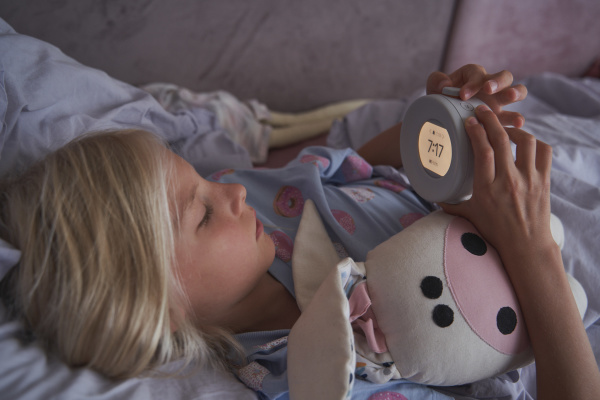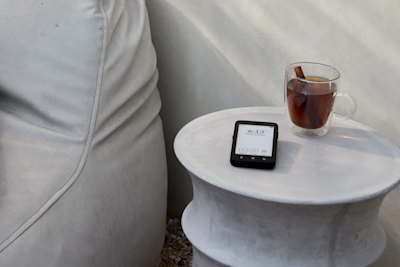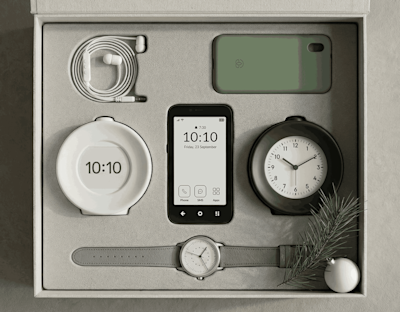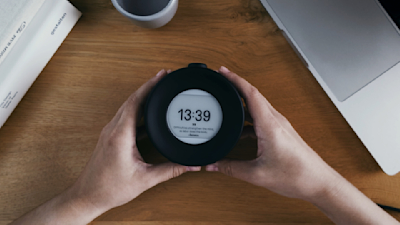
Kids & Sleep: The importance of Sleep Hygiene in Children
Sleep Hygiene Should Be A Priority for Your Kids
Sleep affects everyone, no matter how young or old they are. However, in our bustling, always-on, ever-connected world, sleep often takes a backseat. It's easy to forget how fundamental it is, especially for our little ones who are navigating the crucial stages of physical and mental development. It’s important to remember that sleep is not just a “nice-to-have”; it's a pillar of health and well-being which sets the stage for a child's future.
Let's go over why sleep hygiene matters so much and how you can make sure to prioritize it in your children's lives.
The Power of Sleep in Early Life
Sleep is a non-negotiable part of human existence, no matter our age. Yet, it assumes an even more pivotal role in children. Those initial hours of slumber are golden; they allow a child's brain to process and consolidate the learnings of the day. Just like a nightly reset button, sleep equips youngsters with the essential rest needed for growth and learning.
READ: Healthy Sleeping Tips: A Simple Guide to Better Sleep
How Much Sleep Do Kids Really Need?
While babies require a whopping 12 to 16 hours of sleep to flash those gummy smiles, toddlers and preschoolers need slightly less—but it's still a lot. The Centers for Disease Control and Prevention (CDC) highlights that nearly 35% of children aged 4 months–17 years are sleep deprived. This lack of rest can snowball into long-term repercussions on their health, behavior, and emotional well-being. For school-aged children and teens, the American Academy of Pediatrics (AAP) recommends: [1][2][3]
Ages 1-2 years: 11-14 hours (including naps)
Ages 3-5 years: 10-13 hours (including naps)
6 to 12 years: 9 to 12 hours per night
13 to 18 years: 8 to 10 hours per night
Yet, concerning data from the CDC reveals that only one in four high schoolers actually achieves at least 8 hours of sleep per night.[2]
Why Sleep is a Non-Negotiable
Sleep is the building block of brain functionality. Not only does it cement memories, but it also sweeps away the brain's daily "clutter," enhancing our cognitive abilities. Sleep deprivation isn't just about tired eyes and yawning; it's linked to serious health concerns like obesity, high blood pressure, and diabetes. Sleep is also a crucial ally of the immune system, and skimping on it can make kids more susceptible to illness. [4][5][6]
Quality and quantity go hand in hand when it comes to sleep. Poor sleep quality can manifest in a variety of ways, including reduced academic performance and heightened mood swings. Simply put, poor sleep can set kids up for a challenging day at school and at home.[7]
The Modern Challenges: Screens Before Bedtime
While it's tempting to hand over an iPad or phone to entertain your kids before bed, this can be detrimental to their sleep quality. The blue light emitted by screens can fool the brain into "daytime mode," disrupting the natural production of the sleep hormone, melatonin.
The Mudita Way: Crafting a Restful Sleep Environment
To ensure your child gets the restorative sleep they need, consider incorporating technology mindfully. Swapping out smartphones for a classic alarm clock like the Mudita Bell or Mudita Harmony can make a world of difference. These traditional alarms remove the temptation of late-night scrolling, setting the stage for a tranquil night and a serene morning.
Promote an offline bedtime ritual which involves reading or listening to calming music, rather than screen time.
DID YOU KNOW? Both Mudita Harmony and Mudita Harmony 2 have a unique Relaxation Library, which lets you upload your own custom audio, so that you can create the perfect atmosphere to promote sleep.
Mudita Harmony 2 & Mudita Harmony
By creating a sleep-friendly environment, you can help your child achieve the quality sleep they truly deserve.
Tackle The Day Ahead
Sleep hygiene is more than just a trendy term or a buzzword; it's an essential practice that has a direct impact on your child's physical and mental development.
Understanding the sleep needs based on your child’s age is the first step in creating an optimal sleep environment. Mindfully limiting screen time, opting for a classic alarm clock, and setting a serene offline bedtime routine are all actionable steps parents can take to set their children on the path to high-quality rest.
So, let's prioritize sleep as a family value, because when our kids rest well, they're not just dreamers—they're achievers, ready to conquer the world one well-rested day at a time.
If you’d like to read more about topics connected to the subject of better sleep, please take a look at our Sleep Better page for more information and helpful resources.
You might also find some other interesting other articles published on our blog:
Join the conversation
Our forum is a great place to share ideas and discuss topics connected to wellness and well-being.
Related stories

Why Kompakt is a Different Kind of Upgrade for the New Year
A different kind of upgrade for the new year. Discover how Mudita Kompakt, a minimalist phone, helps reduce digital overload & restore focus, balance & clarity.

Introducing 8 Days of Mindful Gifting
Mudita presents 8 Days of Mindful Gifting. One new promotion each day, Dec 5–12 at 12:00 CET. Visit daily for meaningful, intentional gift ideas.

New Mudita Harmony Update: Wake Up Inspired with Custom Quotes
Discover the new Custom Quotes feature in Mudita Harmony & Harmony 2. Personalize your wake-up routine with inspiration that starts your day right.
If you'd like to receive the best stories from our blog, keep up to date with our progress and get notified about our product releases and special discounts.